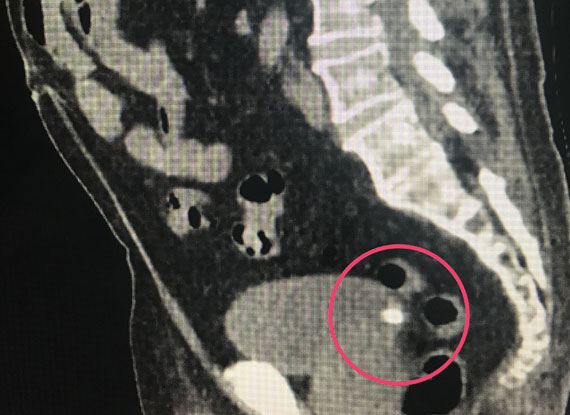What are bladder stones?
Bladder stones are stones that form in the bladder. They are composed, like kidney stones, from substances in the urine (calcium, oxalate, urate and phosphorus).
Who is likely to develop a kidney stone?
There are two main risk factors for bladder stone formation:
- Incomplete bladder emptying
- Benign prostatic hyperplasia (enlarged prostate)
- Urethral stricture
- Spinal injury
- Foreign body
- Urinary catheter
- Ureteric stent
- Urethral sling
- Surgical stitch

What are symptoms of bladder stones?
Bladder stones irritate the bladder and may occasionally block the bladder neck. This results in:
- Recurrent urinary tract infections
- Blood in the urine
- Pain on voiding, especially with abrupt stopping or slowing of urination
- Intermittent urinary stream (stops and starts)
How are bladder stones diagnosed?
Bladder stones are diagnosed either on radiological imaging (ultrasound, CT scan etc) or at cystoscopy.
How are bladder stones treated?
The treatment of bladder stones requires firstly removal of the bladder stone and secondly, treatment of the underlying cause.
The most effective way to treat bladder stones is endoscopically with a laser. This avoids the need for any cuts, and frequently for any catheter, post-procedure.
KEY POINTS
- All bladder stones need to be removed.
- Bladder stones frequently suggest another, underlying problem.
